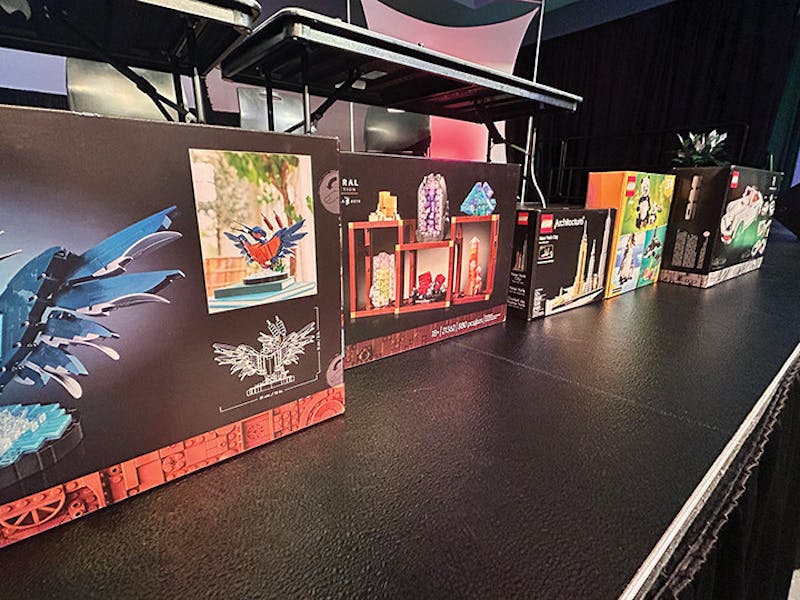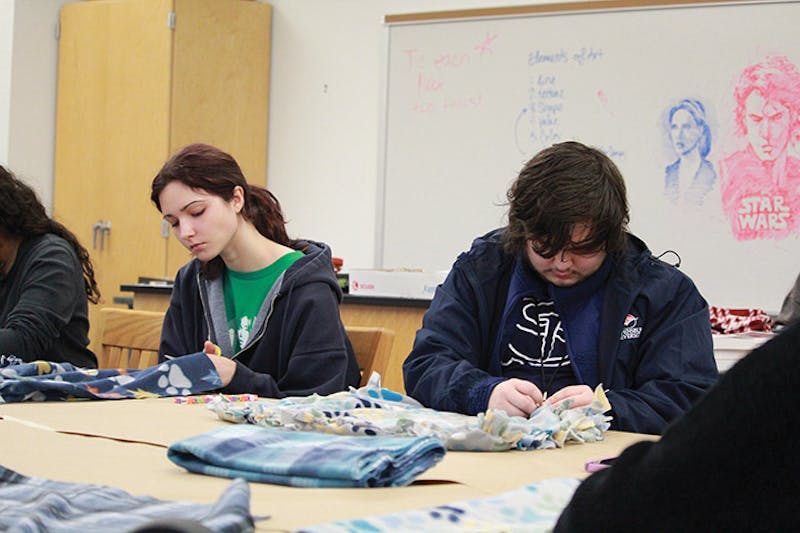Students and Shippensburg community members gathered at the Cub’s MPR room Saturday evening for the annual Kwanzaa celebration, sponsored by the African-American Organization (Afro-AM).
The largely family-oriented festival produced an authentic African-American cultural experience with traditional music, dance and food, which showcased aspects dominant in black culture.
Throughout the event various forms of entertainment engaged the attendees. The Proverbs Reggae Band provided live music by performing original Rasta-Reggae tunes. Soul in motion—a collection of African drummers and dancers, enticed the crowd with its energetic music and pair of stilt dancers who showcased acrobatic movement that heavily excited the crowd.
Young Children who attended were entertained by the moon bounce, as well as the coloring books and cross words puzzles distributed to educate them on the holiday. The coloring books detailed the purpose of Kwanzaa, while also having children color in the candles of the Kinara with the appropriate shade representative of the seven days of celebration.
Simpkins said his favorite part of the celebration was seeing how excited the children were and the enthusiasm on their faces when they discovered the various activities that were present.
“I love seeing their faces light up,” said Afro-Am President Lavell Simpkins, “not just when you bring them on campus but when you show them the different photo albums, funnel cake, show them the Reggae dancers, moon bounce and stilt walkers.”
“You let them see that Universities are about academics—but there are also different programs like this, where right now they may be just attending but in the future they can be leading and participating from a much higher level” Simpkins said.
Kwanzaa is an annual week long holiday beginning the day after the Christmas that celebrates African American culture and heritage. It involves feasting, gift-giving and the lighting of the Kinara—which symbolizes the honoring of Kwanzaa’s seven core principles.
“Kwanzaa has lot of different purposes, but the two purposes that stand out the most to me are Nia and Umoja,” Simpkins said. “Nia means purpose and we all have a purpose within this world, it’s just identifying what that purpose is and truly building off of it. Umoja, which means unity, is about coming together and really uniting and uplifting one another regardless of skin color, ethnicity or socioeconomic status.”
Since its creation by Maulana Karenga in 1961, Kwanzaa has been observed by blacks primarily in the United States and west African nations.



The Slate welcomes thoughtful discussion on all of our stories, but please keep comments civil and on-topic. Read our full guidelines here.